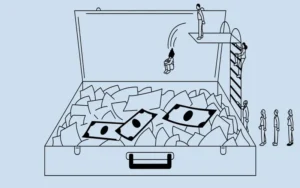What is a Lessee?
A person who rents land or other property from a lessor is a lessee. The tenant also referred to as the lessee, must fulfill specific duties stipulated in the lease agreement and by applicable laws. The lessee may face eviction if they break the lease terms, a legally enforceable agreement.
Understanding Lessees
When renting a property, tenants might be expected to abide by specific rules and regulations regarding how they use the space or land they pay for. If the asset is a car leased, the lessee might have mileage restrictions on how much they can drive. The lessee may be responsible for additional costs if the leased vehicle’s mileage exceeds the predetermined amounts.
Throughout the lease, the lessee must also provide regular servicing and maintenance for the vehicles they rent. Since the car will be delivered back to the car dealer at the end of the lease, these requirements must be satisfied. After that, the car would be sold as a used car. If a lessee can pursue complete ownership of the vehicle after the lease, it is plausible that they would do so.
Rights of Lessees
A lessee or tenant of a commercial or residential property may have various limitations on how they use the space. Certain rights to renovate the property to suit the business better using the space may be granted to a commercial lessee. This can involve painting the walls a new color, putting up signs that reflect the brand of the business, or setting up equipment that will be utilized while conducting business. A commercial lease will also state whether or not the asset has to be put back in its original condition at the end of the tenancy.
Residential lessees can have restricted options or be prohibited from painting their rented space. They might be permitted to adorn the property with transient decorations. Among the lessee’s rights are:
- The privacy right
- the entitlement to necessities for habitation, including heat, power, and water
- the right to occupy a space that conforms with building codes in the area
Rights of Lessors
Lessees have rights as well. These consist of:
- The authority to vet possible tenants
- the right to be informed about and to accept the occupant(s) of the rented property
- The authority to use all or a portion of the security deposit that the tenant paid to repair any damage the lessee causes to the property.
In addition to following health and safety regulations, the landlord is also accountable for fixing any issues, returning a reasonable portion of the tenant’s security deposit at the end of the lease, and giving the tenant advance notice if they need to access the unit.
Conclusion
- A renter is someone who rents land or things, like a car. The lessor is the person or business that the client rents from.
- Most lessees must follow specific rules and restrictions when using the property. For example, when they lease a car, they have to stick to certain distance limits.
- If you are a renter and live on a home or business property, you may have different rules about using the room.
- When it comes to rental property, both lessees and lessors have rights and duties.


































